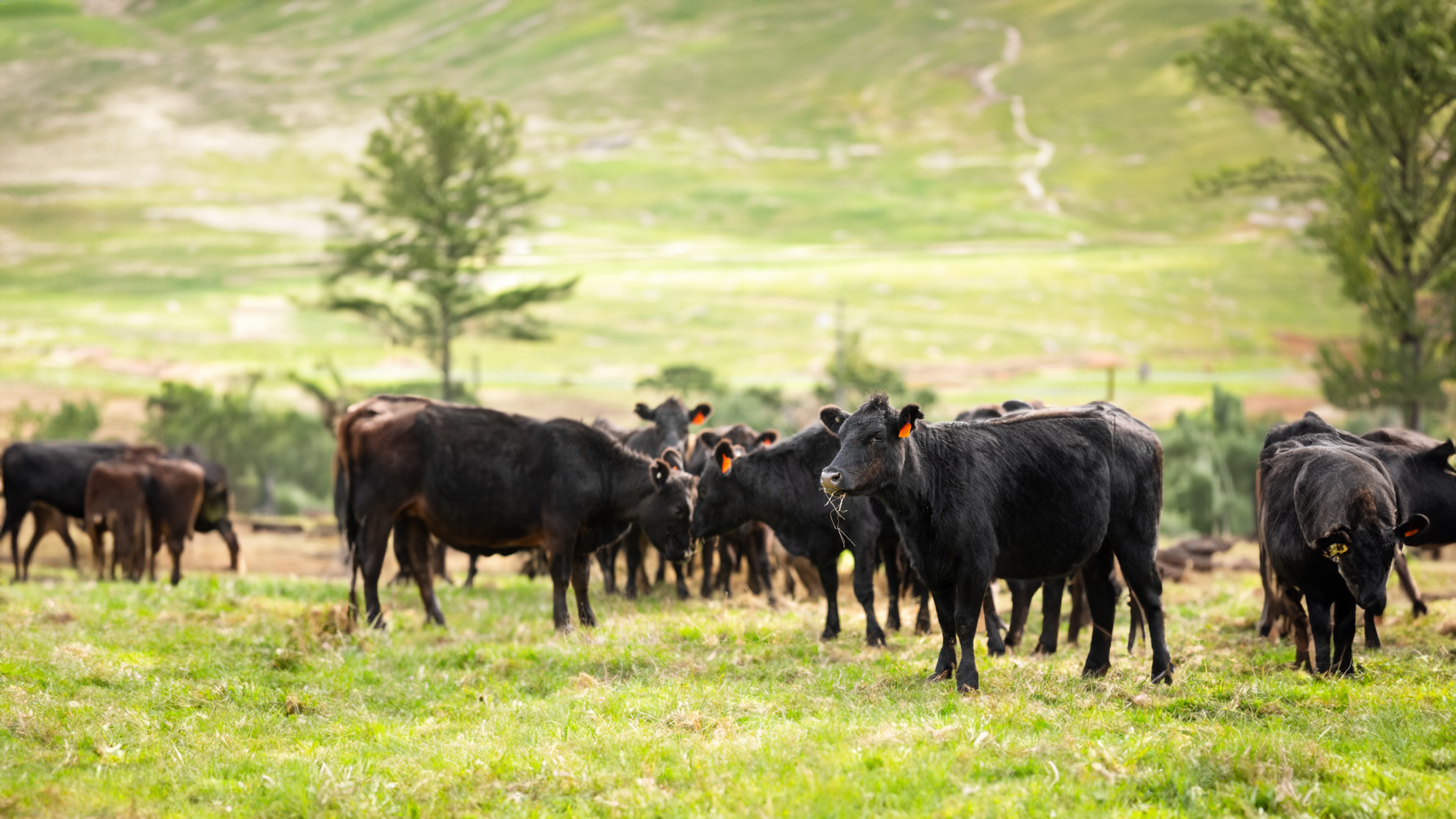

Frontiers Forum Deep Dive series
The methane imperative
16 October 2024
At this event, renowned researchers explored why methane emissions are rising faster than projected, what this means for climate targets, and cost-effective strategies for methane mitigation.

Speakers
-

Prof Drew Shindell
Duke University, USA
-

Tomas de Oliveira Bredariol
International Energy Agency, France
-

Dr Lena Höglund-Isaksson
International Institute for Applied Systems Analysis, Austria
-

Prof Marcelo Mena
Global Methane Hub, Chile
-

Prof Euan Nisbet
Royal Holloway, University of London, UK
-
Martina Otto
Climate and Clean Air Coalition, UNEP, France


Three critical actions to slow global warming
This event builds on a Frontiers in Science lead article outlining recent growth in methane emissions and three “imperatives” for reversing this, to keep climate targets in reach and mitigate health and agricultural impacts.
The article authors and other experts discussed options and strategies for methane abatement, including cost-effective technologies, systemic changes, and policy measures.
Agenda
Introduction & setting the scene | Prof Drew Shindell
Turning pledges into progress | Tomas de Oliveira Bredariol
Methane abatement – are we getting the incentives right? | Dr Lena Höglund-Isaksson
Charting a path forward | Panel discussion and Q&A
Speaker and contributor bios
-
Drew Shindell
Nicholas Professor of Earth Sciences, Duke University, USA
Drew Shindell is a leading physicist and climate scientist specializing in the natural and human drivers of climate change. As chair of the Climate and Clean Air Coalition Scientific Advisory Panel, he steers policy efforts to reduce air pollution and mitigate climate change. He has testified on climate issues before both houses of the US Congress, developed a climate change course with the American Museum of Natural History, and frequently appears in the media as part of his outreach efforts.
Drew chaired the 2011 the United Nations Environment Programme (UNEP) and the World Meteorological Organization (WMO) Integrated Assessment of Black Carbon and Tropospheric Ozone, and was a coordinating lead author on the 2013 Fifth Assessment Report of the Intergovernmental Panel on Climate Change (IPCC) and on the 2018 IPCC Special Report on 1.5°C.
Elected to the National Academy of Sciences, he has previously held positions at the NASA Goddard Institute for Space Studies in New York City and Columbia University. In his current role at Duke University, Drew’s research continues to influence global climate policy and promote sustainable environmental practices.
-
Lena Höglund-Isaksson
Senior Research Scholar, International Institute for Applied Systems Analysis (IIASA), Austria
Lena Höglund-Isaksson is a senior research scholar at the International Institute for Applied Systems Analysis in Austria. She is renowned for her research on air pollution, greenhouse gases, and climate policy and has developed the global methane module in IIASA’s GAINS model. She also coordinates policy applications on mitigation strategies for methane and other non-CO₂ greenhouse gases. Applications for this include impact assessments of EU's energy and climate policy packages and various global assessments such as the Global Methane Assessment, United Nations Environment Programme (UNEP) Emissions Gap Reports, and Intergovernmental Panel on Climate Change (IPCC) assessment reports.
Lena is interested in understanding how barriers for emission reductions can be overcome, be it technical, behavioral, institutional, or political barriers. Her research supports international efforts to address climate change, providing valuable insights for policymakers.
Photo: © Matthias Silveri | IIASA
-
Tomás de Oliveira Bredariol
Energy and Environmental Policy Analyst at the International Energy Agency, IEA, France
Tomás de Oliveira Bredariol led the analysis on methane emissions in the International Energy Agency's World Energy Outlook 2023 and the Global Methane Tracker 2024. He specializes in analyzing and developing policies that promote sustainable energy and environmental practices.
Prior to his arrival at the IEA, he worked as a Policy Officer in the Brazilian Institute of the Environment and Renewable Natural Resources, Environmental Permitting Directory, where he was responsible for environmental impact assessments, emergency response and follow-up activities related to the permitting of offshore oil and gas undertakings. He is an Environmental Engineer with a Master in Public Policies, Strategies and Development.
Tomás's expertise continues to influence policy decisions, driving progress toward a more sustainable future.
-
Euan Nisbet
Emeritus Professor of Earth Sciences, Royal Holloway, University of London, UK
Euan Nisbet is an Emeritus Professor of Earth Sciences at Royal Holloway, University of London. Renowned for his work on atmospheric science, he specializes in studying methane emissions and their impact on climate change. He has led numerous international research projects and has been a key voice in climate science, influencing both policy and public awareness.
Euan leads MOYA: the global methane budget, a UK Natural Environment Research Council consortium with 14 partner institutions studying methane across the planet. They monitor greenhouse gases at multiple stations from the Arctic to the Antarctic, and on a ship travelling from north to south in the Atlantic.
Throughout his career, Nisbet has contributed significantly to understanding greenhouse gases and global warming. His dedication to environmental research continues to inspire new generations of scientists.
-
Martina Otto
Head of Secretariat, Climate and Clean Air Coalition, United Nations Environment Programme (UNEP), France
Martina Otto brings over 25 years of experience in environmental policy and program management, with a focus on creating sustainable cities. An expert in partnership building, she has held multiple roles at the UN Environment Programme in Paris and Nairobi, leading efforts in transport, bioenergy, and energy policy. She was the previous head of secretariat for the Global Alliance for Buildings and Construction, and now is Head of Secretariat of the Climate and Clean Air Coalition.
Before joining UNEP, Martina worked on trade and environment and economic instruments in the area of environmental protection with the United Nations Conference on Trade and Development, the European Commission and the Foundation for International Environmental Law and Development. She is a qualified lawyer specializing in environmental law.
-
Marcelo Mena
Chief Executive Officer, The Global Methane Hub, Chile
Marcelo Mena is the founding Chief Executive Officer of the Global Methane Hub, the world's first and only globally coordinated philanthropic effort to overcome barriers and slash methane emissions in record time. Under his guidance, GMH has advanced methane reduction policies and projects in over 150 countries and territories, including China and India. His contributions have been recognized through awards from NASA, the US Environmental Protection Agency, and the National Geographic Society.
Marcelo is also a distinguished professor at the Pontificia Universidad Católica de Valparaíso and the former Environment Minister for Chile. During his tenure as minister, he has been instrumental in numerous international environmental initiatives, most notably was his involvement in crafting a groundbreaking agreement aimed at phasing out coal power generation. He also pioneered South America’s inaugural carbon taxes for power generation and new car sales, facilitated the establishment of 45,000 square kilometers of national parks, and spearheaded efforts to safeguard 1.3 million square kilometers of ocean.

